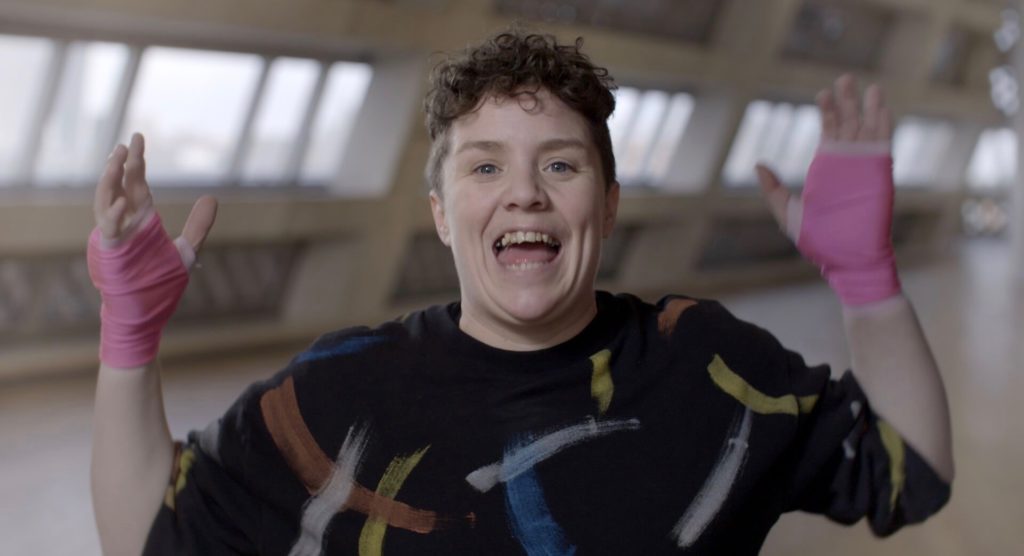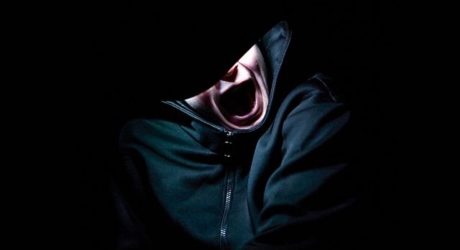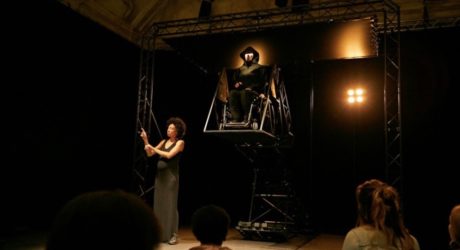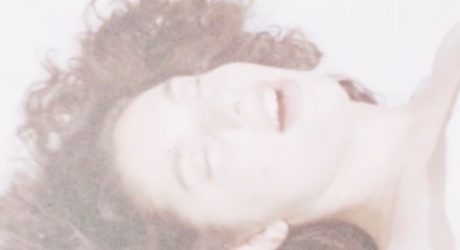
First staged in 1972, Samuel Beckett’s dramatic monologue, Not I, is stark by design—consisting only of a woman’s mouth, hovering about eight feet above the floor and illuminated by a single spotlight. Speaking in rapid, tangential sentences, the voice belongs to a character called, simply, Mouth.
In her 2018 film, Me, My Mouth and I, director Sophie Robinson follows artist, activist, and performer Jess Thom, who has Tourette syndrome, in her preparations to stage and star in a neurodiverse presentation of Not I. Through Beckett’s work, Jess explores depictions of disability while examining accessibility in theatre—both on stage and off.
cléo spoke with Sophie in advance of the film’s screening at the ReelAbilities Film Festival in Toronto this Sunday, where Jess will be joining for a post-film Q&A (click here for details).
Can you tell us a little bit about the origin story of this film?
This is more of a question for Jess as it was her idea to make this film and it’s her life’s quest to fight for the right kind of disability representation in the arts. For me, it was a simple case of Jess inviting me to join her in the making of this film so I come into the story later. From what I understand, Jess and Matthew took the idea of making a film about Jess’s performance of Beckett’s Not I to the BBC and using it as a vehicle to get their message heard. The BBC, in the typical BBC way, wanted to pair them up with someone who had made BBC films before—and as I am someone who’s made a lot of films for the BBC, my name eventually came their way. I have to be honest and say that before I met Jess I had naively and ignorantly not given enough thought to representation of neurodiversity in the arts. It took meeting Jess and working with her to realize just how under-represented such a huge part of the population is. I have always been an advocate of giving a platform to voices which go unheard, but this was an area I knew little about. It was only in working with Jess on this film that I had my eyes opened to so many things that I now try to incorporate into everything I do.

When did you and Jess first meet?
We met a few months before filming last year. I received a call from Amelia King who was the producer on the film and she asked if I would come and meet Jess to discuss this film that had been commissioned by the BBC. I was told by Amelia that Jess was very clear about who she did and didn’t want to work with and that I shouldn’t take it too personally if she didn’t want to work with me after our meeting. So as I’m sure you can imagine I was pretty nervous about meeting her! However, for me, from the moment we met I thought we just clicked (you’d have to ask Jess if she feels the same!). The first thing I remember about her was her smile and her eyes and I knew immediately that she was a very smart and very kind human being. Along with Matthew, we all shared a similar sense of humour so I knew immediately that I wanted to work with them both. It also helped that I wasn’t a middle-aged, middle-class white man!
On a meta level, how was it capturing—and later editing—someone else’s creative process?
It was completely inspiring. As filmmakers, we all like to call ourselves creatives and think that our way is different to the norm, but it’s not until you work with someone like Jess that you realize how conventional and clichéd some of your “creative” habits have become. Working with Jess is like throwing out the rule book. She makes you see the world in a different way and doesn’t work by anyone else’s rules. She forces you to think beyond any easy way of thinking, but with the confidence of knowing there is a better and more creative way of doing things. She uses humour to get across very difficult issues and emotion in a way that isn’t forced or sentimental. And because of all of this your creativity is pushed to levels you didn’t think you were capable of. It’s an experience that has changed the way I think and work for the better.

Jess speaks with many people within her own network in the film, and says at one point that she’s eager to explore what it means to be looked at. How did you collaboratively approach such a personal film?
Through a mutual respect and understanding of each other’s different lives and experiences, taking what was best for the film without compromising anyone’s integrity, and taking Jess’s lead on whose voices were important for her story.
Are there any filmmakers whose work you’d like cléo readers to watch out for?
Oh my god, where do I start?! All the women I have ever worked with, all the independent filmmakers who find the stories that commercial platforms would never dare to make. All the risk-takers and activists who never give up. All the filmmakers who are driven by passion and not by profit. All the storytellers who believe in giving voices to the unheard. Watch out for all of them!





